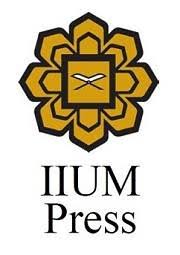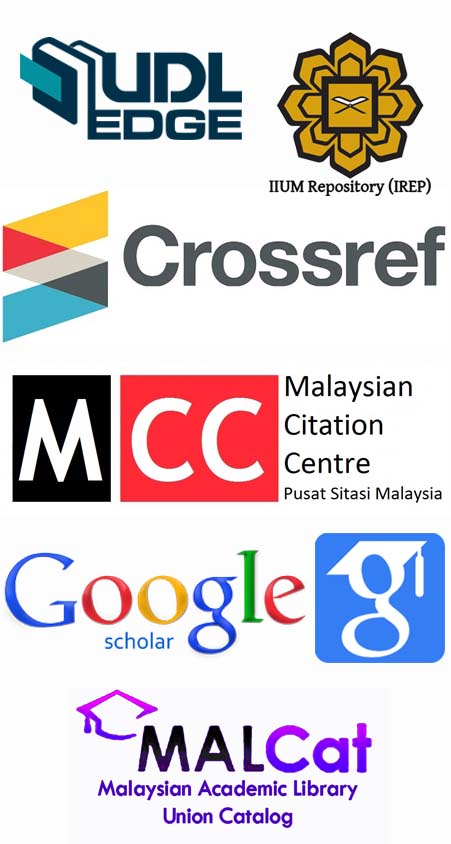صمود الثقافة الإسلامية في مواجهة العولمة: دراسة تحليلية في ضوء القرآن الكريم
The Resilience of Islamic Culture in the Face of Globalization: An Analytical Study in Light of the Qur'an
DOI:
https://doi.org/10.31436/alburhn.v9i1.367Keywords:
Resilience, Islamic Culture, Globalization, Analytical Study, Qur'anAbstract
This research aims to study the mechanisms and position of Islamic culture in the face of the impacts of globalization and contemporary technological developments. The research addresses the concept of Islamic culture, its sources, and its core characteristics, with a special focus on the Qur'an as the main source of cultural resilience. The study seeks to highlight the essential importance of Islamic culture in the life of a Muslim and how it clings to its values and identity despite the challenges posed by globalization. The research compares Islamic culture with other cultures, emphasizing the factors threatening its sustainability considering contemporary technological openness. The study relies on an inductive approach by gathering Qur'anic verses and Hadiths that emphasize the essence of Islamic culture and is based on the opinions of interpreters and scholars to analyse and derive their implications. It also uses a descriptive analytical approach to clarify the importance of preserving Islamic culture based on Qur'anic verses and their interpretations, benefiting from the sayings of scholars and thinkers. The research reached several conclusions, the most notable of which are: preserving Islamic culture in the face of modern technological developments requires directing the use of technologies in a way that aligns with Islamic values, by promoting Islamic education and utilizing technology to spread religious culture and organize digital content that reflects the true image of Islam. On the other hand, Islam provides tools and mechanisms that help Muslims interact with technological developments while ensuring the protection of cultural and religious identity, such as creating Islamic digital content and developing applications that contribute to spreading Islamic values, with self-regulation.
Downloads
References
Ibn Manẓūr, Muḥammad ibn Mukarram ibn ʿAlī. (1414H). Lisān al-ʿArab (3rd ed.). Beirut: Dār Ṣādir.
Ibn Fāris, Aḥmad ibn Zakarīyā al-Qazwīnī. (1399H/1979). Muʿjam Maqāyīs al-Lughah (n.d.). Taḥqīq: ʿAbd al-Salām Muḥammad Hārūn. Publisher: Dār al-Fikr.
Al-Qurṭubī, Shams al-Dīn, Abū ʿAbd Allāh Muḥammad ibn Aḥmad al-Anṣārī al-Khazrajī. (1384H/1964). al-Jāmiʿ li-Aḥkām al-Qurʾān (2nd ed.). Taḥqīq: Aḥmad al-Bardūnī wa Ibrāhīm Aṭfīsh. Cairo: Dār al-Kutub al-Miṣriyyah.
Muʾnis, Ḥusayn. (1978). al-Ḥaḍārah (n.d.). Kuwait: Maktabat ʿĀlam al-Maʿrifah.
Al-Maydānī, ʿAbd al-Raḥmān Ḥasan Ḥabannakah. (1417H/1996). al-Akhlāq al-Islāmiyyah wa Ususuhā (4th ed.). Damascus: Dār al-Qalam.
Mālik ibn Nabī. (1979). Taʾammulāt (1st ed.). Damascus: Dār al-Fikr.
Al-Khaṭīb, ʿUmar ʿŪdah. (1399H/1979). Lamaḥāt fī al-Thaqāfah al-Islāmiyyah (3rd ed.). Beirut: Muʾassasat al-Risālah.
Al-ʿUmari, Nādia Sharīf. (1406H/1986). Aḍwāʾ ʿalā al-Thaqāfah al-Islāmiyyah (4th ed.). Beirut: Muʾassasat al-Risālah.
Al-Jundī, Anwar. (1982). al-Thaqāfah al-ʿArabiyyah (1st ed.). Beirut: Dār al-Kitāb al-Lubnānī.
Ḥusayn, Sayyid Quṭb Ibrāhīm. (1988). Khaṣāʾiṣ al-Taṣawwur al-Islāmī (10th ed.). Cairo: Dār al-Shurūq.
Al-Saʿdī, ʿAbd al-Raḥmān ibn Nāṣir. (1420H/2000). Taysīr al-Karīm al-Raḥmān fī Tafsīr Kalām al-Manān (1st ed.). Taḥqīq: ʿAbd al-Raḥmān ibn Maʿlā al-Luwayḥiq. Publisher: Muʾassasat al-Risālah.
Al-Dajānī, Aḥmad Ṣiddīqī. (2000). al-ʿArab wa al-ʿAwlamah (3rd ed.). Beirut: Markaz Dirāsāt al-Waḥdah al-ʿArabiyyah.
Manṣūr, Mamdūḥ Maḥmūd. (2003). al-ʿAwlamah: Dirāsah fī al-Mafhūm wa al-Ẓāhirah wa al-Abʿād (n.d.). Alexandria: Dār al-Jāmiʿah.
Al-Jābirī, Muḥammad ʿĀbid. (1997). Qaḍāyā fī al-Fikr al-Muʿāṣir: al-ʿAwlamah - Ṣirāʿ al-Ḥaḍārāt (2nd ed.). Beirut: Markaz Dirāsāt al-Waḥdah al-ʿArabiyyah.
Abū al-ʿAlā, Muḥammad Ḥusayn. (2004). Diktātūriyyat al-ʿAwlamah. Cairo: Maktabat Madlūlī.
Al-Fatlāwī, Suhayl Ḥasan. (2009). al-ʿAwlamah wa Atharuhā ʿalā al-Waṭan al-ʿArabī (n.d.). Jordan: Dār al-Thaqāfah.
Raḍwān, ʿAbd al-Munṣif Ḥusayn. (2006). al-ʿAwlamah wa Atharuhā: Ruʾyah Taḥlīliyyah Iḍāfiyyah (n.d.). Alexandria: al-Maktab al-Jāmiʿī al-Ḥadīth.
Ḥanafī, ʿAbd al-Munʿim. (2000). al-Muʿjam al-Shāmil lil-Muṣṭalaḥāt al-Falsafiyyah (3rd ed.). Cairo: Maktabat Miyūlī.
Al-Jazāʾirī, Muḥammad Majdī. (1999). al-Nabawiyyah wa al-ʿAwlamah fī Fikr Klūd Līvī Shitrāws (3rd ed.). Publisher: Dār al-Ḥaḍārah li-l-Ṭibāʿah wa al-Nashr wa al-Tawzīʿ.
ʿAbd al-Raḥīm, Akram. (2002). al-Taḥaddiyāt al-Mustaqbaliyyah li-Takattul al-Iqtiṣādī al-ʿArabī: al-ʿAwlamah wa al-Takattulāt al-Iqlīmiyyah al-Badīlah (1st ed.). Cairo: Maktab al-Mubdiʿīn.
ʿAbd al-Muʿṭī, Sayyid Yāsīn. (2000). ʿAwlamah ilá Ayn (1st ed.). Cairo: Shibl Badrān.
Al-Namlah, ʿAlī ibn Ibrāhīm ibn Ḥamd. (2006). Fikr al-Intimāʾ fī Zaman al-ʿAwlamah: Waqafāt maʿa al-Mafhūmāt wa al-Taṭbīqāt (1st ed.). Riyadh: Dār al-ʿUbaykān.
Al-Masīrī, ʿAbd al-Wahhāb. (2013). al-ʿIlmāniyyah wa al-Ḥadāthah wa al-ʿAwlamah (1st ed.). Taḥrīr: Sūzān Ḥarfī. Damascus: Dār al-Fikr.
Al-Jābirī, Muḥammad ʿĀbid. (1998). al-ʿAwlamah wa al-Huwiyyah al-Thaqāfiyyah (2nd ed.). Beirut: Markaz Dirāsāt al-Waḥdah al-ʿArabiyyah.
Al-Qaraḍāwī, Yūsuf. (1421H). al-Muslimūn wa al-ʿAwlamah. Publisher: Dār al-Tawzīʿ wa al-Nashr al-Islāmiyyah.
Rafīq, Abū Bakr. (2007). Makhāṭir al-ʿAwlamah ʿalā al-Huwiyyah al-Thaqāfiyyah li-l-ʿĀlam al-Islāmī, vol. 4. al-Jāmiʿah al-Islāmiyyah al-ʿĀlamiyyah Shītāghūn.
Ḥamdī, Muḥyī al-Dīn. Taʾwīl al-Ṭabīʿah wa al-Wujūd, Majallat ʿAlāmāt, Wizārat al-Thaqāfah. Issue 40. Rabat: 2013.
Al-Ḥaddād, Haytham Jawād. al-ʿAwlamah al-Lughawiyyah. Majallat al-Bayān. Issue 170, January 2003.
Al-Zawwāwī, Khālid Muḥammad. (2003). al-Jawdah al-Shāmilah fī al-Taʿlīm (n.d.). Cairo: Majmūʿat al-Nīl al-ʿArabiyyah.
Downloads
Published
How to Cite
Issue
Section
License
In general, reusing or reproducing substantial portions of al-Burhān content requires permission. This includes the use of text, figures, tables, multimedia content, and any other material published in any issues of al-Burhān Journal of Qur'an and Sunnah Studies. For some instances, al-Burhān may make its content freely viewable; however, such material may require permission for reuse. To seek permission, please contact the editorial.









